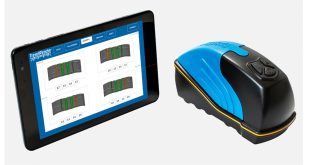By eating more healthily, truck drivers can considerably improve their response times. And ultimately, that may save lives out on the road. Volvo Trucks in the Netherlands closely monitored a recent Danish survey and as a result is now introducing health care as one of the courses in its driver training programme.
The link between what a driver eats and traffic safety is not particularly new.
It has long been known that for the brain to function properly and maintain its alertness, it needs carbohydrates, which are converted in the body to blood glucose at a steady rate throughout the day. We get this steady supply by eating complex carbohydrates. Simple carbohydrates such as sweets, soft drinks and white bread, on the other hand, provide short bursts of energy that leave us tired again after just one hour.
What is new is how clearly the body is affected by poor diet, and how quickly it is possible to restore it and thus improve traffic safety.
The survey that lifestyle consultant Mette-Marie Linding produced in cooperation with the Danish Transport Union’s educational foundation shows that drivers with an unhealthy diet had a longer stopping distance than those drivers who ate more healthily.
Mette-Marie Linding got the idea of investigating the significance of diet on traffic safety after she was contacted by a trade union that was having problems with a driver who as a result of his overweight could not breathe properly while changing gear. A few months later she was on a motoring holiday in southern Europe and saw for herself how the poor food served at roadside truck-stops combined with the sedentary lifestyle behind the wheel made it difficult for drivers to maintain a healthy lifestyle.
In order to investigate the link she used two groups, one consisting of 23 drivers who maintained a healthy and nutritious diet according to the food circle, while the other group’s members continued with their regular diet. Over a period of twelve days, the participants’ reaction times were tested a number of times in a simulator. As early as the second day, a noticeable difference in response times could be observed between the two groups. This can be explained by the fact that unhealthy food, which causes blood glucose to peak quickly and then dive, puts the body into a state of imbalance, resulting in mood swings, headaches, increased stress and poorer powers of concentration.
Those drivers who ate regularly and healthily and who therefore had a steadier blood glucose level, had reaction times that were an average of 16 percent faster than the drivers in the other test group. At the same time, the drivers on the healthy diet perceived themselves to be less irritable and more satisfied as a result of their regular mealtime routines.
The survey also shows that in just twelve days, it is possible to reduce blood pressure and blood cholesterol so much that they no longer need to be treated.
At the start of the survey, 52 percent of the participants had high blood pressure requiring treatment, and 74 percent had such a high blood cholesterol level as to justify medication. However, after just twelve days on a healthy diet with regular meals six times a day, these figures had dropped to 30 and 39 percent respectively.
In addition, a more visible result was noticed: the drivers who ate more healthily lost up to seven kilos during the test’s twelve days.
At Volvo Trucks in the Netherlands, these results have been noted with considerable interest and as of last autumn, the company has included health as a compulsory course in all of its driver training programmes.
"Since there is a strong link between food and traffic safety, we felt that it was important to put health firmly on the agenda. Overweight is a serious problem among commercial vehicle drivers owing to the highly static nature of their work. At the same time, many drivers want to be healthier but simply don’t know how to set about making the necessary change," says Charles Engelaar of the Volvo Trucks marketing department in the Netherlands.
The health-care training includes information about what constitutes a good or bad diet, how to get exercise while out on the road, tips for good seating positions and a health check. The participants also get to measure their body fat or BMI level as a way of understanding their physical condition. After this, the drivers are offered a coach to help them reach their ideal weight.
"Having healthy drivers is also healthy for society in general. What is more, there’s money to be made. By reducing the risk of accidents, the trucks can spend more time on the road and the company avoids losing time, money and reputation when their vehicles are in the workshop for repairs," emphasises Charles Engelaar.
 MHW Magazine News and stories from the Materials Handling Industry
MHW Magazine News and stories from the Materials Handling Industry


























